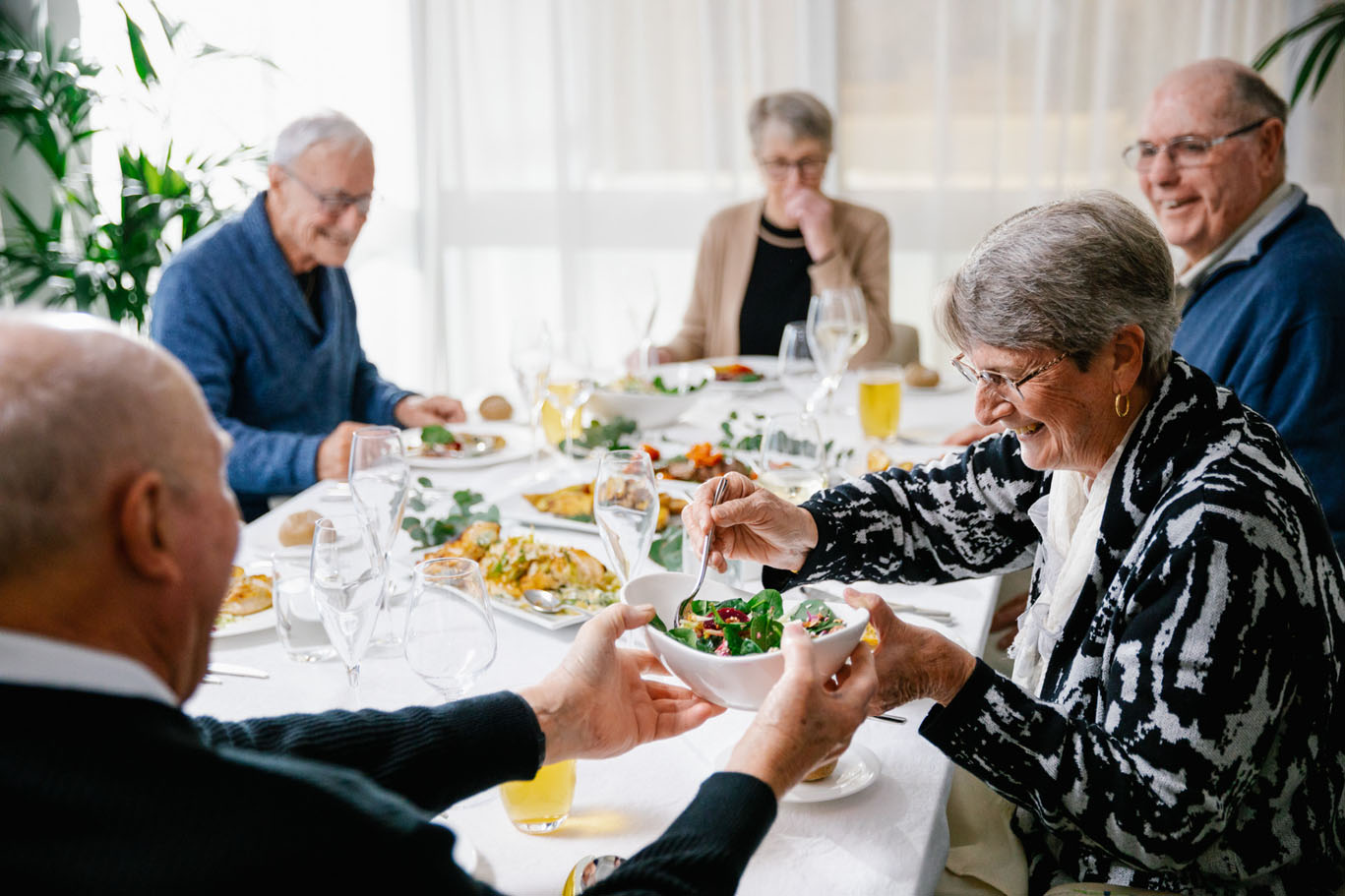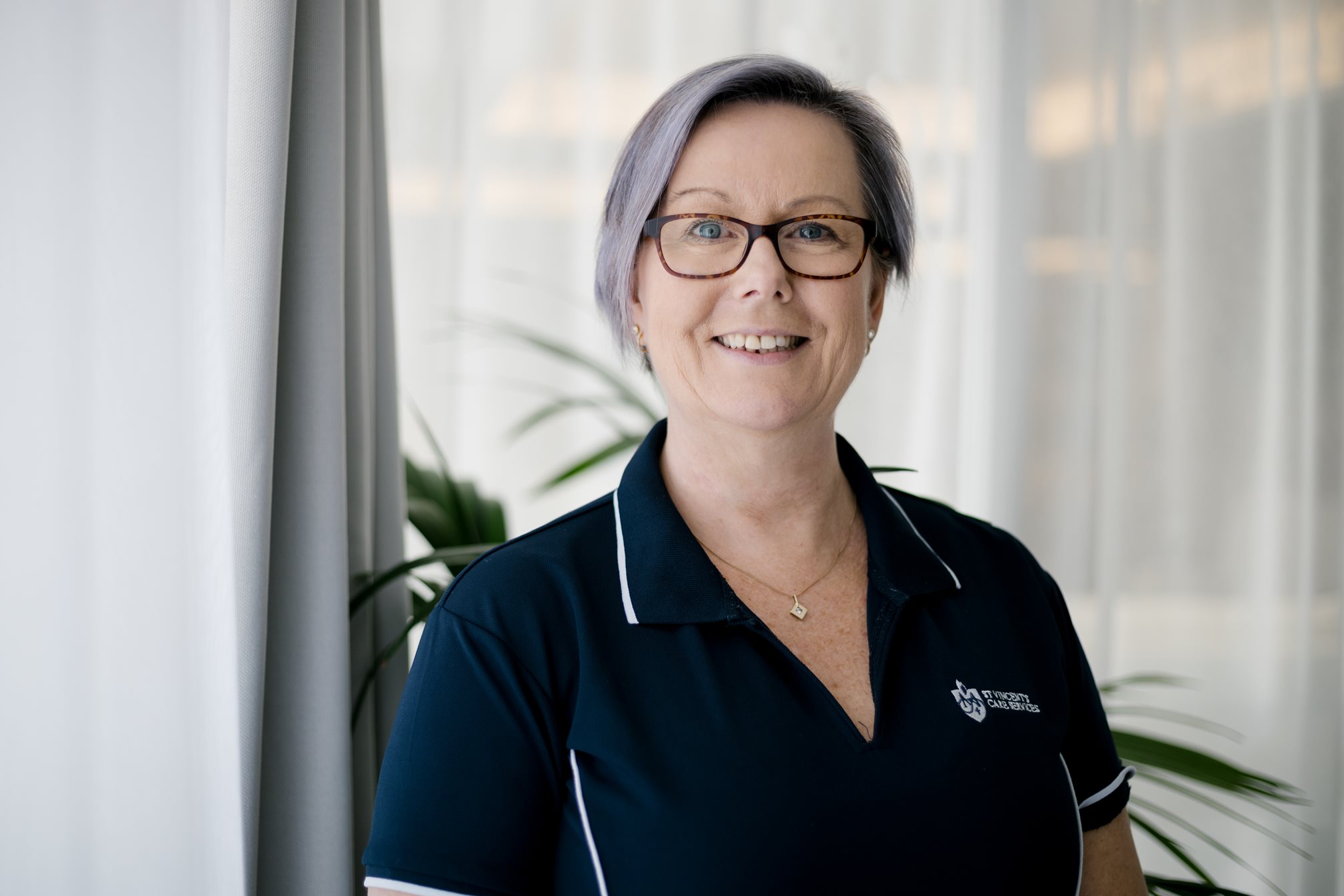Healthy Eating Tips for Older Adults (5 'Must Haves' For Your Diet)
5 'must haves' for a diet | Parting thoughts
Updated 29th February 2024 | 4 minute read
Written by Jesse Gramenz 

When it comes time for a person to consider full time care in an aged care home, everyone is different. But short of going through any aged care assessment criteria, we've provided a list of early signs to keep an eye out to help you decide whether to take next steps.
5 'Must Haves' for an Older Adult's Diet
I don't know about you, but hearing the words 'Older Adult' diet makes me think of all nutrition & zero taste. But that simply isn't true.
More nutrition doesn't mean compromising taste and quality. In fact, there are smart changes you can make to your existing diet that can not only make what you eat more nutritious, but dare I say, infinitely more delicious too.
Also to note: No information you find online is a substitute for professional advice from a GP or a registered dietician. While we're providing good general advice here, always make sure you're chatting with the experts for a diet that works best for you (because let's face it: we're all different).
Ok, with that disclaimer out the way, here's 'Must Have' no.1:
1. You MUST have a consistent source of protein
As we age, our bodies undergo various changes, including a natural decrease in muscle mass. This makes protein essential in our diet to help maintain, rebuild, and repair our bodies, especially our muscles.
By age 70, you're going to need to be eating about 20% more protein than when you were younger. That is unless you were a protein-guzzling gym-junkie anyway.
Protein-rich foods, such as meats, fish, poultry, eggs, dairy products, nuts, and a variety of pulses and legumes become key players in our nutrition. Experts suggest aiming for 25-30 grams of protein at each main meal to support our bodily needs effectively.
25-30 grams of protein could be:
- 3-4 eggs (usually the least expensive option)
- A piece of chicken breast
- A protein shake
However, maintaining muscle isn't just about nutrition; physical activity plays a crucial role too. Getting at least 30 minutes of daily exercise, can help prevent muscle loss.
Even short, enjoyable walks throughout the day can add up to substantial health benefits. Resistance or strength training is also recommended 2-3 times a week for 10-15 minutes.
A great Greek called Hipporates once said:
“If you are in a bad mood, go for a walk. If you are still in a bad mood, go for another walk.”
It's not just exercise -- it's good for life!
In an aged care context. St Vincent's has walking groups, exercise groups led by physios and nutritionist approved menus that keep everyone healthy & active. You can check that out at some of our top aged care homes in Sydney.
An almost 'illegal' way to get more protein in the diet
Flip the switch on a dull salad. Chickpeas & white beans make an excellent addition to most salads and introduce that extra little bit of protein and flavour.
You can even get them straight out of a can (that can be our little secret).
Nuts are another excellent addition for salads added straight in or blended, but the cost of some of them, particularly cashews, might make you gasp ($20 a kilo is downright criminal).
2. You MUST get calcium in your diet
As we age, our bodies absorb less calcium from food increasing the risk of conditions like osteopenia and osteoporosis.
Chances are, if you're reading this, you probably know someone with osteperosis. And if you know someone with it, then you know how important prevention for it is.
Calcium-rich foods include dairy products, calcium-fortified tofu, almonds, chia seeds, and fish with bones.
Men should aim for 2.5 dairy servings daily, while women need 4 servings to meet their calcium needs.
When it comes to calcium, it's all about the little things:
- A tablespoon of chia seeds is about 10% of your daily intake of calcium
- Parmesan cheese has the most calcium of cheeses (and hard cheeses have less lactose making them easier on the stomach too)
- Even canned salmon has calcium because of the bones in the can
You can pop any of the above in a salad, or alongside a bigger meal. It's the stacking of these little changes that can really add up.
3. You MUST get Vitamin D every day
Vitamin D supports bone health by increasing calcium absorption and is best obtained from sunlight.
The latest season of Outlander can wait -- get some sun!
Aim for a few minutes of direct sunlight in summer and 2-3 hours in winter, daily to the arms and feet (or equivalent area of skin). Avoid being in the sun in the hottest part of the day.
Foods like fortified margarine, fatty fish (salmon, mackerel, herring, sardines), liver, cod liver oil, and egg yolks also provide Vitamin D.
Just last week I saw grilled barramundi on the Valentine's Day menu for one of our aged care homes in Werribee -- that menu had better food than I'd have in a month!

I'll take that on a platter any day of the month
4. You MUST get a good chunk of fibre
Fibre found in plant foods not only helps maintain regular bowel movements and reduce constipation but also lowers cholesterol and blood glucose levels.
It also keeps away a bunch of other nasty diseases and issues that make for terrible talk around the dinner table.
"Fibre? You mean like bran flakes?"
Nope.
Well, I mean, if you really want. But there's heaps of other ways to get fibre in the diet.
If you really want to get serious about adding more fibre:
- Add fruit to that boring morning cereal
- Pop an extra vegetable in your evening meal (treat yourself)
- Add some lentils to your pasta of choice
- Buy wholegrain bread rather than the white varieties
Adults should aim for 25 to 30 grams of fibre each day, achievable through a balanced and varied diet.
Overall, you should incorporate high-fibre foods like whole grains (bread, cereals, crackers), fruits, vegetables, and legumes (beans, peas, lentils) into your meals. Strive for 3-6 servings of grains, 2 servings of fruit, and 5 servings of vegetables or salads daily to meet your fibre needs.
So, get some fibre in your dibre (nothing really rhymed with fibre).
5. You MUST have plenty of fluid...?
Fluid sounds like a terrible vague thing to add to your diet. But we say 'fluid' because it doesn't just mean water (though that is the bee's knees of fluids)
Staying well-hydrated is key to feeling your best, especially as we age when our natural thirst signals might not be as strong. Not drinking enough fluids can cause dehydration, leading to symptoms like dizziness, constipation, confusion, and a higher risk of falls.
To stay hydrated, include a variety of fluids such as water, milk, custard, ice cream, cordial, juice, soup, teas, coffee, broth and jelly in your diet. Aim to consume 1500ml-2000ml of fluid daily to maintain proper hydration.
Water is obviously best, but there are other options if you want to mix it up.
Bonus: Some simple meal ideas to help you get started
- Roast Chicken Wrap/Roll: Tuck slices of store-bought roast chicken into a wrap or roll, add your favourite salad for a crunch.
- Quick Fried Rice: Combine microwave rice with your choice of chicken, beef, fish or tofu, add steamed or frozen veggies, and a dash of stir-fry sauce for a flavourful meal.
- Mushroom and Spinach Omelette: Whip up an omelette with mushrooms, spinach, and cheese. Serve it in a wrap or over toast, alongside a fresh salad.
- Easy Spaghetti Bolognaise: Cook up some mince, toss in mixed frozen veggies, and simmer with a store-bought pasta sauce for a comforting dish.
- Homemade Pizza: Use pita bread or a pizza base, top with cheese, your choice of meat, chicken, seafood, and veggies for a personalized pizza night.
- Simple Seafood Dinner: Enjoy steamed or pan-fried fish with a side of frozen vegetables and oven-baked chips for a healthy, satisfying meal.
After more ideas like these? Get in touch with our friends at Food Solutions Diet Consultants to get some professional advice on how you can improve your diet. They're specialists in diets for older people.
Parting thoughts
There's no be all and end all to diet. Truthfully no matter our age, we can all benefit from tweaks to our diet. But there are smarter choices we can make that can make us happier and healthier as we get older. And who doesn’t want that?
Still have questions?
CHAT TO OUR AGED CARE EXPERTS
- Home
- Residential Aged Care
- Healthy Eating Tips for Older Adults (5 'Must Haves' For Your Diet)
Helpful Information
.jpg)
How to Talk About Aged Care With Your Parents

Staff and Qualifications
.jpg)